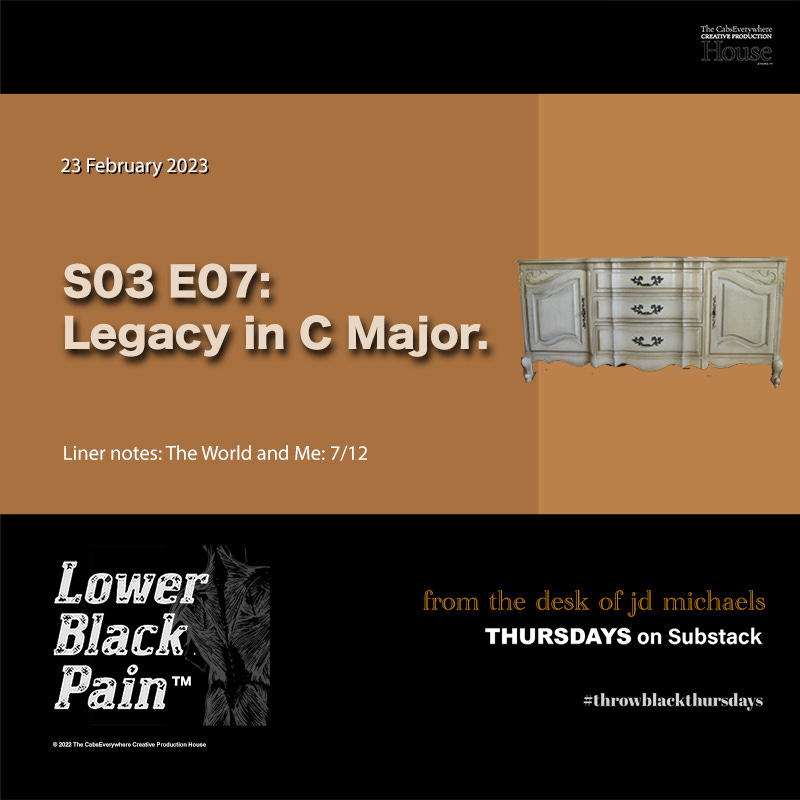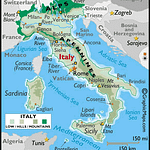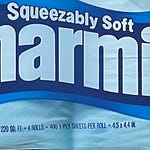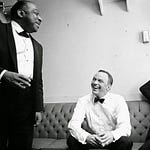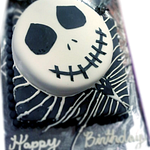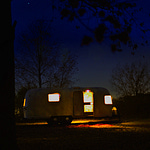It didn’t matter if my grandmother liked you or not. There’d be a big hello, and then she’d offer you a tin of cookies and ask you all about yourself. But as you’d try to tell her she’d make positive sounds like “uh, huh” and “ok” in an increasing amount, until she’d overlap you talking. Then you’d stop talking. And then she’d offer you more cookies.
You wouldn’t take more cookies, not because you didn’t like the first one, but because you wouldn’t be able to figure out what it had actually tasted like. Grandma’s cookies were filled with applesauce instead of butter and sugar because Grandpa was diabetic. Grandma had studied nursing. She wasn’t a nurse, there wasn’t time for all that, but she did know enough to make accurate inferences between what one ate and how one was faring, so her cookies tasted that way because they were healthy, which was mostly confusing because nothing was really healthy back then.
She wrote a whole cookbook. It’s amazing to have a cookbook of your grandmother’s recipes, even just for the historical value. Most of the dishes are made with brand names of things; half a can of brand x condensed milk, 8 sticks of brand y margarine. I can’t eat any of those things anymore, but I do remember exactly what they all tasted like. Including the cookies, which were neither crispy nor soft… somewhere in the middle, dome shaped, about an inch and a half diameter with a distinctly springy consistency, somewhere between a marshmallow and a foam peanut. I must have eaten a thousand of those things.
Yet those cookies are not my grandmother’s legacy. They would have been, if I hadn’t accidentally found, in the dining room
in the huge piece of furniture that held all the candlesticks and holiday linen, at the very bottom of the bottom drawer,
underneath sets of placemats and the Thanksgiving tablecloth
a large folder from a copyright office.
Grandma, what is this?
What is what?
This.
What is it?
A envelope.
What’s in it?
I don’t know, I haven’t opened it yet. It’s from a copyright office.
Well what is it?
I don’t -
I gave up and just opened it (that loop could have gone on forever).
It’s music.
What does it say?
Mommy Dear?
Oh yes, that’s the song I wrote and copyrighted.
In 1938?
I guess so. I wrote a lot of music, you know that.
I did not.
It was an analog triumph. The five pieces of music were handwritten, the notice was manually typed, and the signature on the document had been made with a fountain pen. The whole thing looked like it had taken time to create; no faxes or copy machines or even fast planes to carry it from place to place. And copyrights were fancy. I couldn’t afford one. I was still sending myself everything in a self addressed envelope and not opening it.
When I was a little girl I wanted to play at Carnegie Hall.
In New York?
Yes.
I lived in New York. She didn’t like New York. She did not encourage me to seek a career in the arts, in fact, the polar opposite was true. She played the organ, but only at home, and I was allowed to play it as long as I put the settings back where she had them, but she didn’t give me lessons. It was something she did for fun, I guess.
I asked if I could borrow the music for an hour. I went to Kinko’s and made photocopies, then over the next few months I made a digital version with some very rudimentary instrumentation. That July, for her 85th birthday, my Mom and I threw my grandmother a “record release party”, with burned CDs of the music and a printed insert book with her picture on it.
We decorated the basement with pages of her newly printed score, and she sat at a card table while we each approached her for her autograph. She even asked us our names. I mean, she knew our names… she just really got into it.
Then three generations of her family sat silently and listened to her music. it wasn’t Carnegie Hall, but she seemed to like it.
My grandmother made my grandfather’s career possible; a black lawyer in the 1940s (who sometimes got paid in chickens) who was eventually elected as a county commissioner and then the became the state’s first black district court judge. Her home was a political hub; she arranged fabulous get togethers and rallies and events and salons made even more impressive when you take into consideration that she didn’t like people at all.
She was busy with a reality that necessitated putting dreams, literally, at the bottom of a bottom drawer, because the time for a girl from Topeka to play Carnegie Hall hadn’t come, we were not on Planet Rihanna yet, she was old enough that her parents felt blessed they had never worn chains.
Imagine all that, and then being an artist on top of that. Because that was her temperament, everything she ever did and said makes sense if you think of her as an artist. Like the rest of us, she didn’t get a chance to live too far beyond what was necessary. But sometimes those cookies had raisins in them, so they were chewy little things with littler chewy things inside them, like chewduckens. That’s how she expressed her art.
For me, this column is a happy indulgence, but also my attempt to open up some bottom drawers before I’m a nonagenarian. My true legacy from my grandmother isn’t the life I knew, or even the life she lived, but the folder at the bottom of that drawer. And, of course, her cookbook, although I have never baked those cookies, and at this point I don’t think you’re really asking why, but you’re probably gonna need a glass of water with that.



